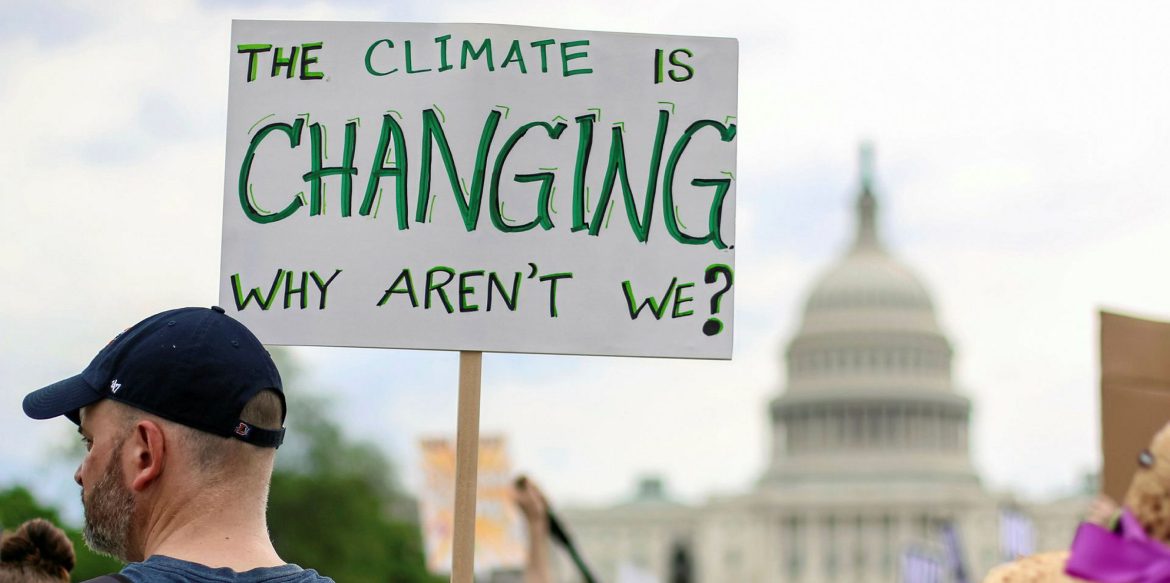As the world continues to grapple with the devastating consequences of climate change, urgent and comprehensive action is required to mitigate its impact and safeguard the future of our planet. Scientists and experts have been sounding the alarm for years, highlighting the dire consequences of rising global temperatures, extreme weather events, and the irreversible damage to ecosystems. In this article, we delve into the most recent developments and initiatives undertaken to tackle climate change.
The Escalating Crisis:
Recent scientific studies and reports have emphasized the gravity of the climate crisis. The Intergovernmental Panel on Climate Change (IPCC) released its latest assessment, underscoring that urgent measures are necessary to limit global warming to 1.5 degrees Celsius above pre-industrial levels. The report warns of severe consequences, such as rising sea levels, food scarcity, and unprecedented biodiversity loss, should this target be surpassed.
Global Collaborative Efforts:
Recognizing the need for collective action, governments, organizations, and communities worldwide have intensified their efforts to combat climate change.
- Transition to Renewable Energy: Countries are accelerating the transition to renewable energy sources to reduce reliance on fossil fuels. The adoption of solar, wind, and hydropower is on the rise, bolstered by advancements in technology and declining costs. Several nations have committed to achieving carbon neutrality by specific target years, driving the development of sustainable energy infrastructure.
- Policy Changes: Governments are implementing transformative policies to curb greenhouse gas emissions. These include carbon pricing mechanisms, stricter regulations on industrial pollution, and incentives for sustainable practices. International agreements, such as the Paris Agreement, continue to provide a framework for global cooperation and emission reduction targets.
- Reforestation and Conservation: Recognizing the vital role of forests in carbon sequestration, initiatives to protect and restore forests have gained momentum. Efforts are being made to combat deforestation, promote afforestation, and invest in sustainable land management practices. Large-scale tree-planting campaigns have been launched globally, aiming to offset carbon emissions and restore biodiversity.
- Sustainable Transportation: The transportation sector, a significant contributor to greenhouse gas emissions, is undergoing a transformative shift. Electric vehicles (EVs) are gaining popularity, aided by advancements in battery technology and the expansion of charging infrastructure. Governments are incentivizing EV adoption through subsidies and promoting public transportation systems.
- Circular Economy: The transition to a circular economy, aimed at minimizing waste and maximizing resource efficiency, has gained traction. Initiatives promoting recycling, reducing plastic consumption, and adopting sustainable production and consumption practices are being implemented by governments, businesses, and individuals.
Challenges and the Way Forward:
Despite progress, numerous challenges persist in the fight against climate change. These include political obstacles, economic barriers, and the need for enhanced international cooperation. However, there is growing recognition that climate action presents not just a challenge but also an opportunity for economic growth, job creation, and innovation.
To address the urgency of the climate crisis effectively, it is crucial to prioritize the following:
- Adaptation and Resilience: Investing in measures to adapt to the changing climate and building resilience in vulnerable communities is essential. This includes infrastructure improvements, early warning systems for extreme weather events, and support for climate refugees.
- Education and Awareness: Increasing public awareness about climate change and its consequences is paramount. Education plays a crucial role in fostering sustainable practices, empowering individuals to make informed decisions, and mobilizing collective action.
- Technology and Innovation: Continued investment in clean energy research and development is vital. Breakthroughs in technology, such as carbon capture and storage, sustainable agriculture practices, and climate modeling, can significantly contribute to mitigating climate change.
Climate change remains one of the most pressing challenges of our time, demanding immediate and sustained action. The global community must prioritize collaboration, innovation, and policy reforms to transition toward a sustainable future. By embracing the opportunity to combat climate change, we can safeguard the well-being of current and future generations, preserve biodiversity, and foster a resilient and equitable planet for all.




